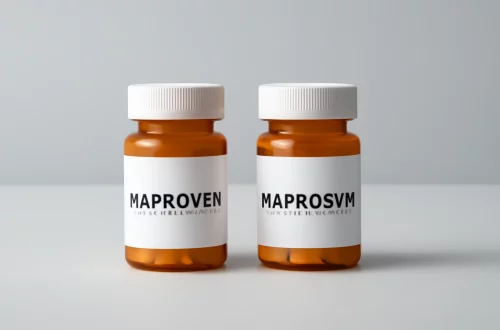
Essential Women Vitamins: The Importance of Iron for Health
The importance of vitamins in a woman’s diet cannot be overstated. With unique physiological and hormonal needs, women require a balanced intake of essential nutrients to support their health throughout different life stages. Among these vital nutrients, iron plays a crucial role that often goes overlooked. Iron is not just a mineral; it is a key component in various bodily functions, including the production of hemoglobin, which carries oxygen in the blood. Its significance is magnified during certain periods of a woman’s life, such as menstruation, pregnancy, and lactation, where the demand for iron increases.
Despite its importance, many women worldwide suffer from iron deficiency, which can lead to anemia and other health complications. This deficiency often stems from a variety of factors, including dietary choices, lifestyle, and even certain health conditions. Understanding the role of iron and ensuring adequate intake can empower women to maintain their overall well-being and vitality. As we delve deeper into this essential nutrient, we’ll explore its functions, sources, and the implications of deficiency, providing insights that can lead to better health choices for women everywhere.
The Role of Iron in Women’s Health
Iron is an essential mineral that plays a vital role in several physiological functions, particularly in women’s health. One of its primary functions is to support the formation of hemoglobin, the protein in red blood cells responsible for transporting oxygen from the lungs to various tissues throughout the body. For women, especially those who experience menstruation, the requirement for iron can be significantly higher due to blood loss during their monthly cycle.
Moreover, iron is critical for energy production. It helps in the conversion of carbohydrates into energy, which is crucial for maintaining physical and mental stamina. Women, often juggling multiple roles in both personal and professional realms, need adequate energy levels to meet their daily demands. Low iron levels can lead to fatigue and decreased productivity, making it essential for women to monitor their intake.
Another important aspect of iron is its role in immune function. Adequate iron levels help maintain a robust immune response, which is particularly important for women who are pregnant or breastfeeding, as their bodies are under increased stress and demand for nutrients. A well-functioning immune system helps protect against infections and illnesses, ensuring overall health and well-being.
It’s also worth noting that iron is involved in cognitive function. Research has shown that iron deficiency can lead to impaired cognitive performance, affecting memory and concentration levels. This is particularly concerning for women in academic or high-pressure work environments, where mental acuity is critical.
In summary, iron is a cornerstone of women’s health, impacting everything from energy levels to immune function. Understanding its roles and ensuring adequate intake can significantly enhance quality of life and promote overall wellness.
Sources of Iron: Dietary Recommendations
To maintain optimal iron levels, it’s essential to incorporate a variety of iron-rich foods into the diet. Iron is available in two forms: heme and non-heme. Heme iron, found in animal products, is more readily absorbed by the body compared to non-heme iron, which is found in plant-based foods.
Excellent sources of heme iron include lean meats, poultry, and fish. Red meat, such as beef and lamb, is particularly rich in heme iron and can be beneficial for women who have higher iron requirements. Incorporating these foods into meals can help meet daily iron needs effectively.
For those who follow a vegetarian or vegan diet, it’s crucial to focus on non-heme iron sources. Foods such as lentils, chickpeas, beans, tofu, spinach, and fortified cereals can provide significant amounts of non-heme iron. However, since non-heme iron is less efficiently absorbed, it’s important to pair these foods with vitamin C-rich items, like citrus fruits, tomatoes, or bell peppers, which can enhance iron absorption.
Additionally, nuts and seeds, such as pumpkin seeds and almonds, also contribute to iron intake. Whole grains, like quinoa and fortified breads, can be included as well, although they contain phytic acid, which can inhibit iron absorption. Soaking or sprouting grains can help reduce this compound and improve bioavailability.
Understanding portion sizes and daily iron requirements is crucial. Women aged 19-50 typically require about 18 mg of iron per day, while pregnant women may need 27 mg. Postmenopausal women often require less, around 8 mg daily. It’s advisable for women to assess their dietary habits and consult with a healthcare provider or nutritionist for personalized recommendations.
Consequences of Iron Deficiency
Iron deficiency is a prevalent issue that can have serious health implications for women. When the body lacks sufficient iron, it cannot produce enough hemoglobin, leading to iron-deficiency anemia. This condition is characterized by symptoms such as fatigue, weakness, pale skin, and shortness of breath. Women experiencing these symptoms should seek medical advice, as untreated anemia can lead to complications like heart problems and decreased immune function.
Moreover, iron deficiency can affect mental health. Studies suggest that low iron levels can contribute to mood disturbances, including anxiety and depression. This is particularly concerning for women, who may already be at a higher risk for mood disorders. Achieving and maintaining adequate iron levels can be an important aspect of mental well-being.
In addition to anemia and mental health concerns, iron deficiency during pregnancy can have significant consequences for both the mother and the baby. Insufficient iron can lead to complications such as premature birth and low birth weight. Furthermore, a baby’s iron stores are built during the last trimester of pregnancy, and inadequate maternal iron levels can affect the infant’s development and long-term health.
Chronic iron deficiency can also lead to a condition known as pica, where individuals develop cravings for non-food substances, such as dirt or clay. This behavior can further exacerbate nutritional deficiencies.
Given these potential consequences, it is vital for women to be proactive about their iron intake. Regular screenings and blood tests can help identify any deficiencies early on, allowing for timely intervention and dietary adjustments.
Strategies for Enhancing Iron Absorption
While consuming iron-rich foods is crucial, enhancing iron absorption can make a significant difference in overall iron status. There are several strategies women can employ to improve the bioavailability of iron from their diets.
First, it’s essential to consider the impact of meal composition. Including vitamin C-rich foods in meals can significantly enhance the absorption of non-heme iron. For example, adding a side of citrus salad or bell pepper to a lentil dish can improve iron uptake.
Additionally, limiting the consumption of calcium and tannins during iron-rich meals can also be beneficial. Calcium competes with iron for absorption, so it’s wise to avoid dairy products, calcium supplements, or calcium-fortified foods at the same time as iron sources. Similarly, tannins, found in tea and coffee, can inhibit iron absorption, so it’s advisable to enjoy these beverages between meals rather than during.
Cooking methods can also influence iron absorption. Using cast iron cookware can increase the iron content of food, especially acidic foods like tomatoes, which can absorb iron from the pan.
Finally, for women with diagnosed iron deficiency, supplements may be necessary. However, it’s essential to consult with a healthcare provider before starting any supplementation, as excessive iron can lead to toxicity and other health issues.
In conclusion, understanding how to enhance iron absorption can empower women to make informed dietary choices that promote optimal iron levels and overall health.
**Disclaimer: This article is for informational purposes only and should not be considered medical advice. For health concerns or dietary changes, please consult a healthcare professional.**



